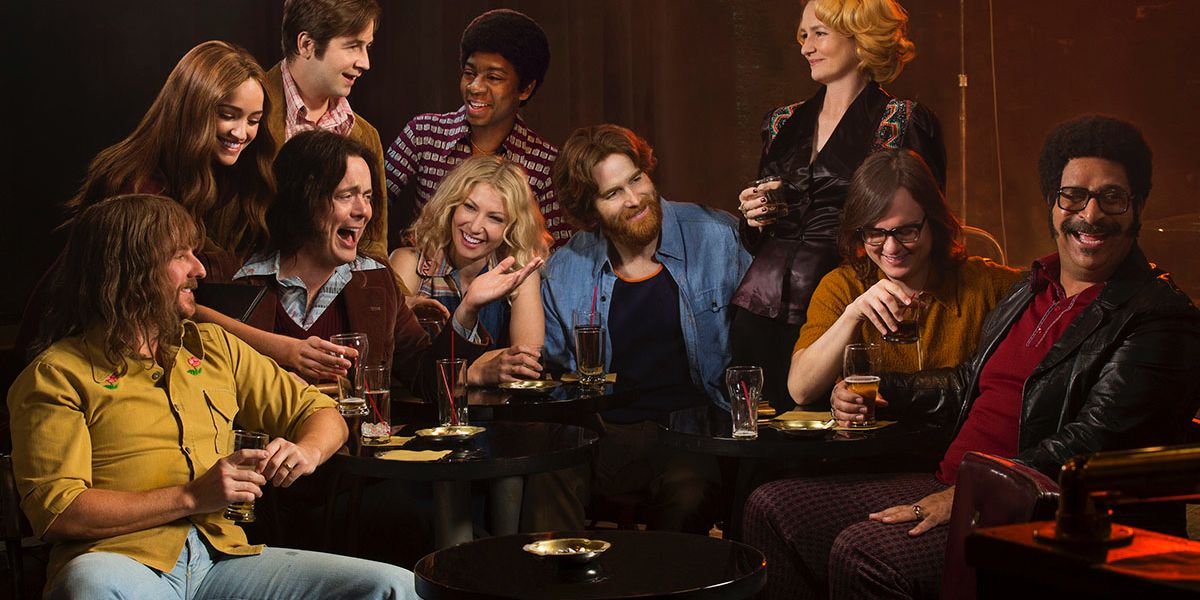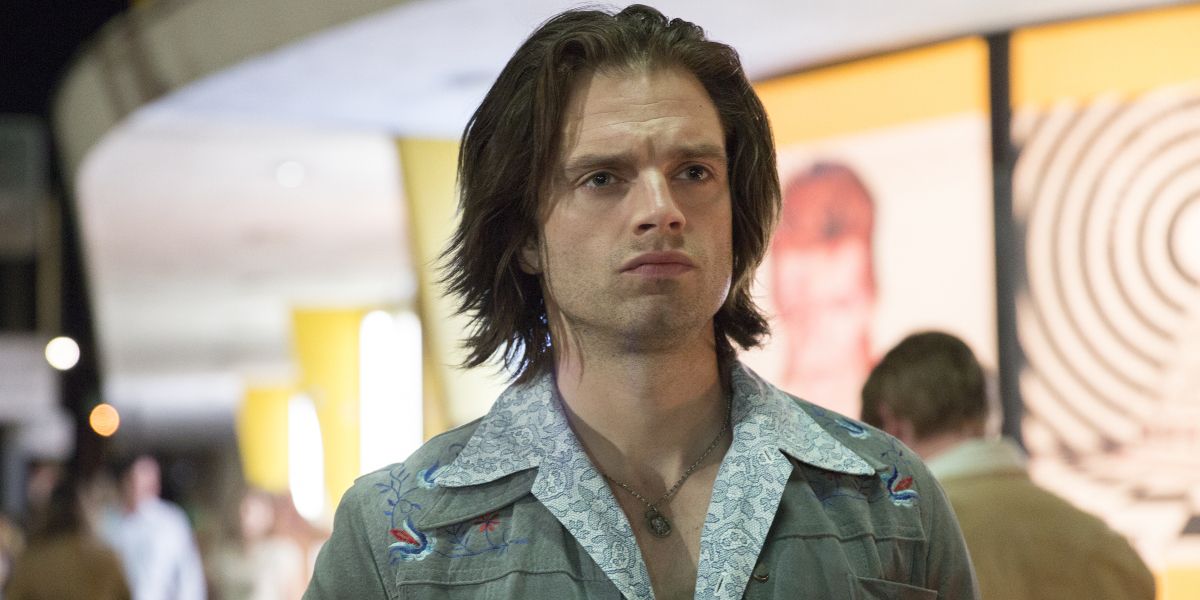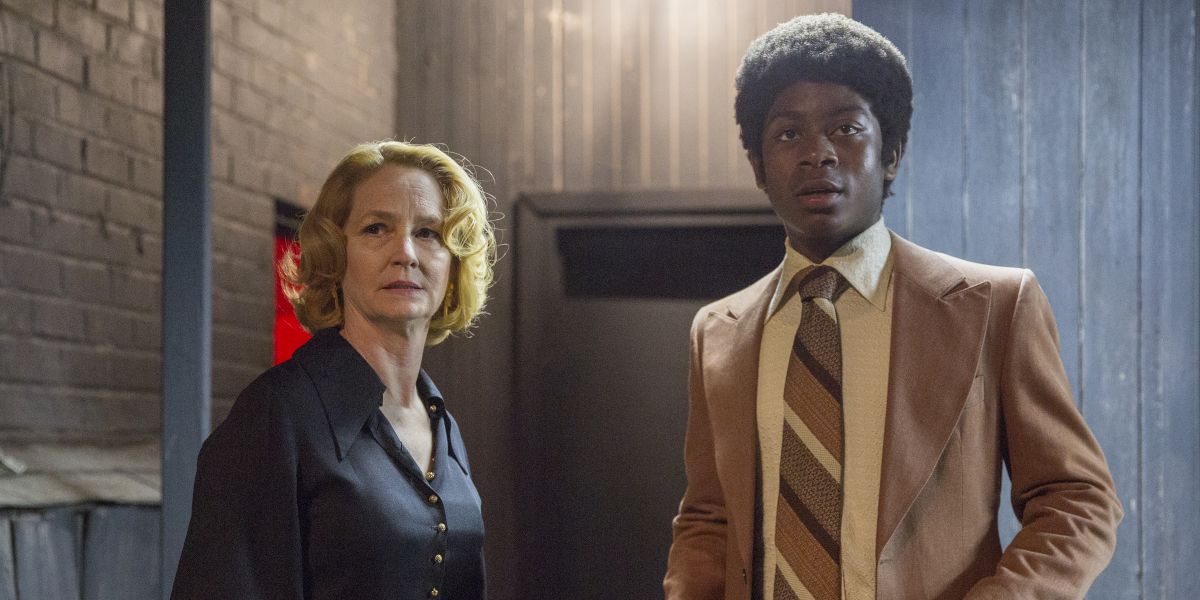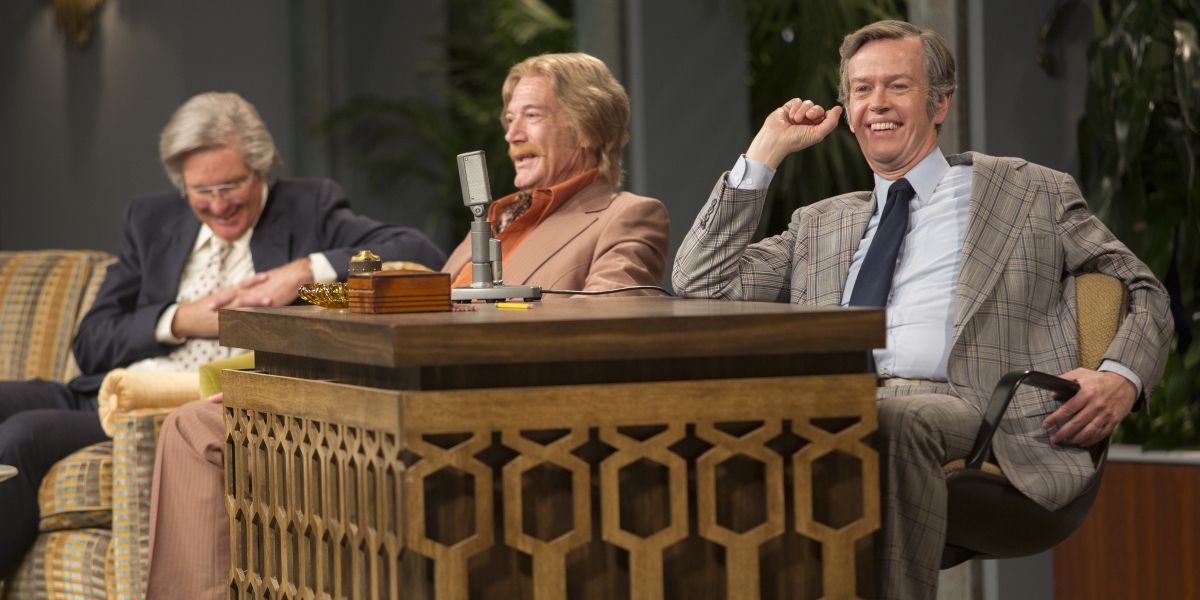I'm Dying Up Here could be a fascinating depiction of comedians but it struggles to find an engaging point of view to explore its setting.
For those who care to recall HBO's Vinyl, Showtime's new series I'm Dying Up Here may immediately raise a few red flags. Though about the Los Angeles comedy scene during the 1970s, rather than the coke-fueled antics of a New York-based record label roughly around the same time, the new series' period trappings, expansive ensemble, and narrative focus on one particular section of the entertainment industry does appear, at first glance anyway, to be riding in on coattails that no longer exist. The loss of those coattails are actually in the favor of I'm Dying Up Here, as after HBO's expensive, Scorsese-produced series flamed out, it apparently left the door wide open for a Jim Carrey-produced series to waltz right in and take the stage like it's an open-mic night.
Coming from Carrey, who has expressed in interviews about the series a desire to showcase what it was like for up-and-coming comics around this time, and based on the nonfiction book by William Knoedelseder, I'm Dying Up Here is clearly a labor of love, a chance to look back in time through a nostalgic lens. The new series is certainly well built to handle such a task, as the period details are front-and-center without the show necessarily tripping over itself trying to point them out. And with a large ensemble of actors and comedians playing (what else?) a group of stand-ups searching for their big break in a competitive industry where a comic's fortunes are determined as much by the strength of his or her set as it is club owners like Melissa Leo's brash Goldie, the series is positioned to explore its setting from a number of potentially fascinating perspectives. And yet, despite the detail that's gone into generating such specificity, I'm Dying Up Here comes up short. The series could be a fascinating depiction of comedians, but it struggles to find an engaging point of view to explore its setting.
For a series about comedians, it often feels as though I'm Dying Up Here is in search of a punch line. A lot of it has to do with the show's structure. It's a loose company of characters, each of whom is related in some way or another to the world of stand-up comedy. And yet, in the pilot directed by Jonathan Levine (Snatched), and for the next few episodes at least, the show is much more about asking the audience to experience a vibe than it is in telling specific story.
In the first hour, the issue has to do with Sebastian Stan's Clay Appuzzo, a stand-up who just got his big break by not only landing a set on Johnny Carson's The Tonight Show, but also being asked to the couch – a sign of approval from the man who was considered by many to be the king-maker when it came to comedians. The story runs back and forth between Clay basking in his post-Tonight Show bliss by eating room service in a hotel, and flashbacks of him explaining in detail to Cassie (Ari Graynor), his then girlfriend and fellow comedian, how the climb is better than the destination, foreshadowing what comes next. After Levine cuts back to a group of Clay's contemporaries at Goldie's eponymous club simmering in a potage of admiration and envy, the comedian steps off a curb, directly in front of a bus.
The moment is effectively jarring. Stan's dialogue up to that point had been particularly leading, but I'm Dying Up Here was never trying to put one over on the audience by getting them to invest emotionally in a comedian who's finally gotten his big break and then removing him from the equation. Instead, the goal seems to be to make those watching feel as unmoored as Cassie, the many other comedians who gather at Goldie's, grinding out sets, honing their craft, and praying for the kind of opening Clay saw as an endpoint. The problem is: it works too well. Once Clay is gone – though not completely, as Cassie still sees him as a manifestation of her complicated feelings about… everything – the series itself begins to feel similarly unmoored.
The vibe that I'm Dying Up Here is so successful at conveying doesn't keep the series from becoming a diffuse sampling of slightly similar experiences. It was a bold move to take an ostensible protagonist off the board and replace him with a collection of types, but the series goes too long without a similarly distinct voice in the crowd to make what happens next as interesting as it could be. Sure, there is Leo's Goldie, who holds a similar, Carson-like sway over the careers of every comedian who takes the stage – main or not – in her establishment, but as electric as the Emmy and Academy Award-winner is when onscreen, the series keeps her at arm's length, lest it become about the trials and tribulations of running a comedy club in the '70s. And at the same time, it's hard to imagine people watching wondering why the show isn't about that; at least then it would have the strong viewpoint it is clearly searching for.
That's not to say there aren't solid character moments in the early goings of the season. Graynor's Cassie enjoys a cathartic minute onstage near the end of the premiere, and Jon Daly makes for an interesting verbal adversary for recent LA transplants played by Michael Angarano and Clark Duke. A later episode again wades into the bitter competitiveness between comedians when Andrew Santino's Bill has a run-in with Jake Lacey's character that offers some interesting insight into how comedians view one another. These are funny moments that occasionally afford the series some needed pathos and that hint at how successful the show could be if given the chance to go deeper and become more focused in terms of its perspective. But in the end, I'm Dying Up Here could stand to tighten up its set a little bit and define it's viewpoint from a more specific angle.
Next: Summer 2017 TV Premiere Dates: New & Returning Shows to Watch
I'm Dying Up Here continues next Sunday with 'Midnight Special' @10pm on Showtime.
Photos: Justina Mintz/Showtime




